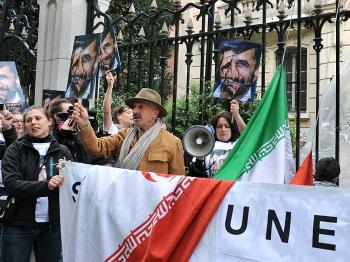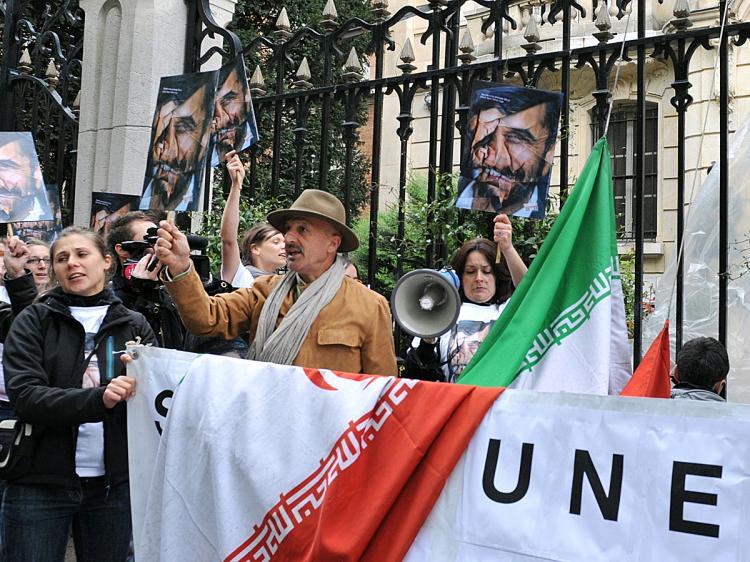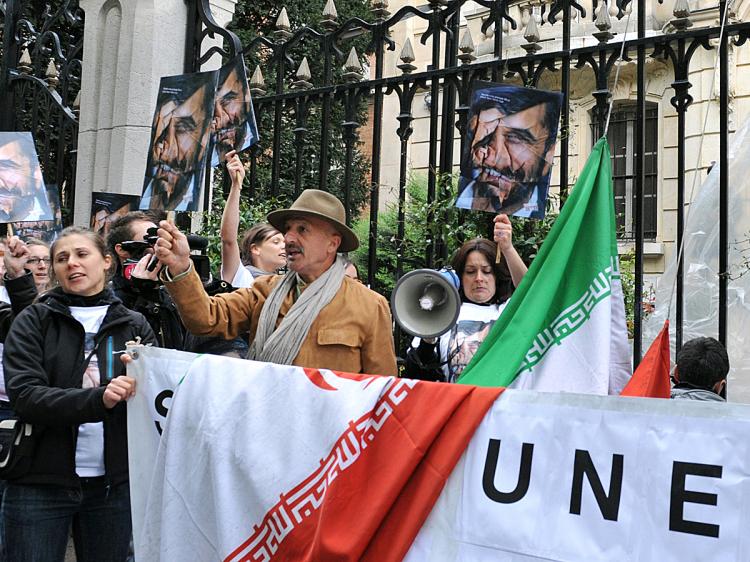The world’s predators of press freedom were named by international human rights watchdog Reporters Without Borders (RSF) Monday. This year’s list, released on Press Freedom Day, includes 40 names that include presidents, prime ministers, government officials, politicians, religious leaders, militias, and criminal organizations.
“They [predators] are powerful, dangerous, violent, and above the law,” RSF said in a statement. “They cannot stand the press, treat it as an enemy and directly attack journalists.”
Among the presidents and prime ministers are China’s leader Hu Jintao, Iranian president Mahmoud Ahmadinejad, Cuban leader Raúl Castro, and Russian Prime Minister Vladimir Putin.
The worsening of press freedom is heavily connected to Asia, parts of Africa, and South America.
Cuba is one of the world’s biggest prisons for media, just behind China and Iran, according to RSF.
Nine journalists have been killed since the start of 2010, while about 300 reporters and netizens are currently detained, say human rights activists.
At the top of this year’s list is Taliban leader Mullah Mohammad Omar from Afghanistan, who has led the group since 1994 and has a lot of support in Pakistan.
Newly-added from Russian politicians is the Kremlin-backed president of Chechnya, Ramzan Kadyrov. Russian and international human rights organizations hold Kadyrov responsible for the persecution of dissidents and human rights activists in the Chechen Republic as well as imposing the regime in the country.
In July 2009, prize-winning human rights advocate Natalia Estemirova was kidnapped from her Chechen home and murdered, causing a great public outcry. Her killers have not yet been brought to justice.
Estemirova monitored the human rights situation in Chechnya for Memorial, a Russian human rights organization. She also advised citizens in legal matters.
Since Kadyrov took office in 2007, the capital of Grozny has been largely reconstructed with life returning to normal after two large-scale wars since 1994 in the North Caucasus.
Over 5,000 people disappeared during extensive military activities from 2000-2004, say human rights groups. Russian human rights organization Memorial says the abductions were aimed at threatening ordinary civilians not to resist the government abnormal activities.
“Chechen society is absolutely broken down and can’t protect itself,” Estemirova once said in an interview with Amnesty International.
“They [predators] are powerful, dangerous, violent, and above the law,” RSF said in a statement. “They cannot stand the press, treat it as an enemy and directly attack journalists.”
Among the presidents and prime ministers are China’s leader Hu Jintao, Iranian president Mahmoud Ahmadinejad, Cuban leader Raúl Castro, and Russian Prime Minister Vladimir Putin.
The worsening of press freedom is heavily connected to Asia, parts of Africa, and South America.
Cuba is one of the world’s biggest prisons for media, just behind China and Iran, according to RSF.
Nine journalists have been killed since the start of 2010, while about 300 reporters and netizens are currently detained, say human rights activists.
At the top of this year’s list is Taliban leader Mullah Mohammad Omar from Afghanistan, who has led the group since 1994 and has a lot of support in Pakistan.
Newly-added from Russian politicians is the Kremlin-backed president of Chechnya, Ramzan Kadyrov. Russian and international human rights organizations hold Kadyrov responsible for the persecution of dissidents and human rights activists in the Chechen Republic as well as imposing the regime in the country.
In July 2009, prize-winning human rights advocate Natalia Estemirova was kidnapped from her Chechen home and murdered, causing a great public outcry. Her killers have not yet been brought to justice.
Estemirova monitored the human rights situation in Chechnya for Memorial, a Russian human rights organization. She also advised citizens in legal matters.
Since Kadyrov took office in 2007, the capital of Grozny has been largely reconstructed with life returning to normal after two large-scale wars since 1994 in the North Caucasus.
Over 5,000 people disappeared during extensive military activities from 2000-2004, say human rights groups. Russian human rights organization Memorial says the abductions were aimed at threatening ordinary civilians not to resist the government abnormal activities.
“Chechen society is absolutely broken down and can’t protect itself,” Estemirova once said in an interview with Amnesty International.






